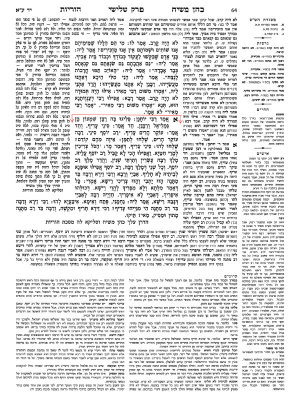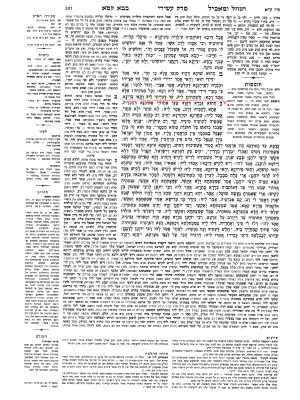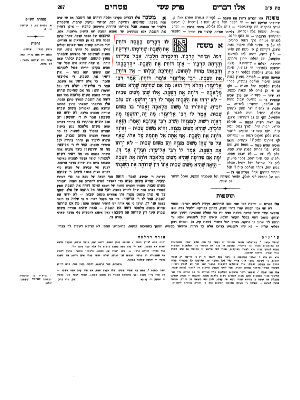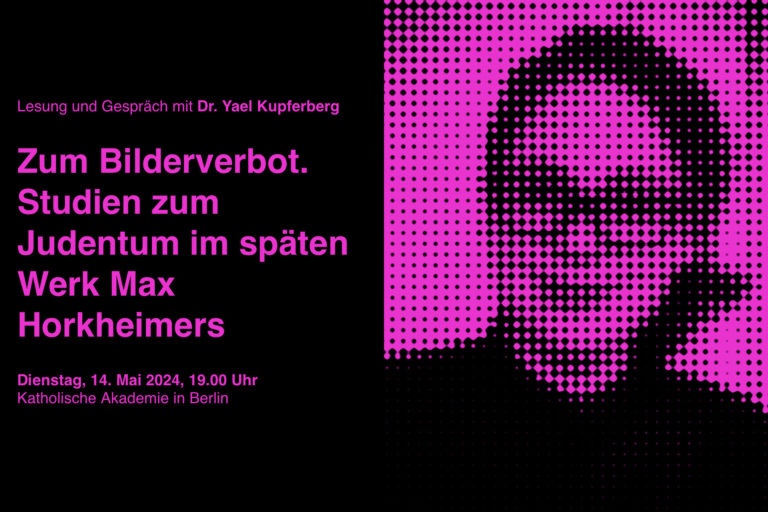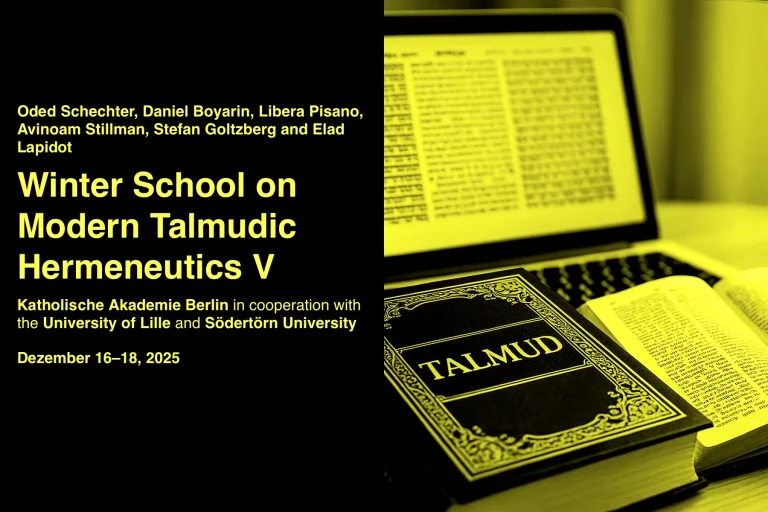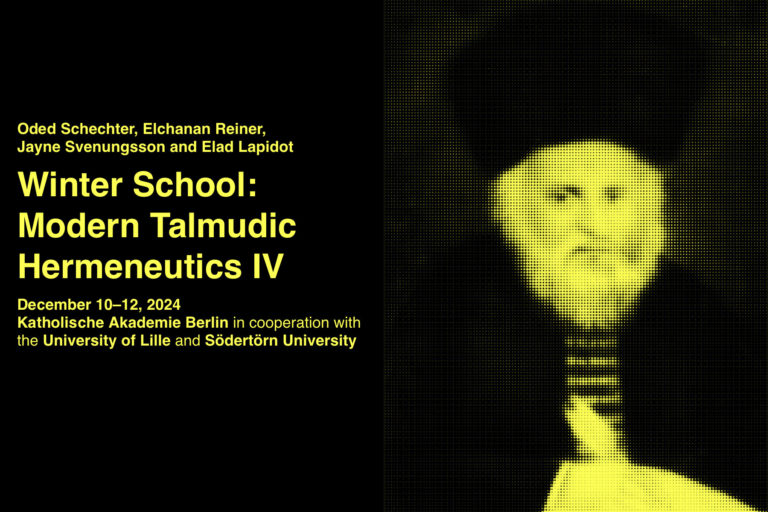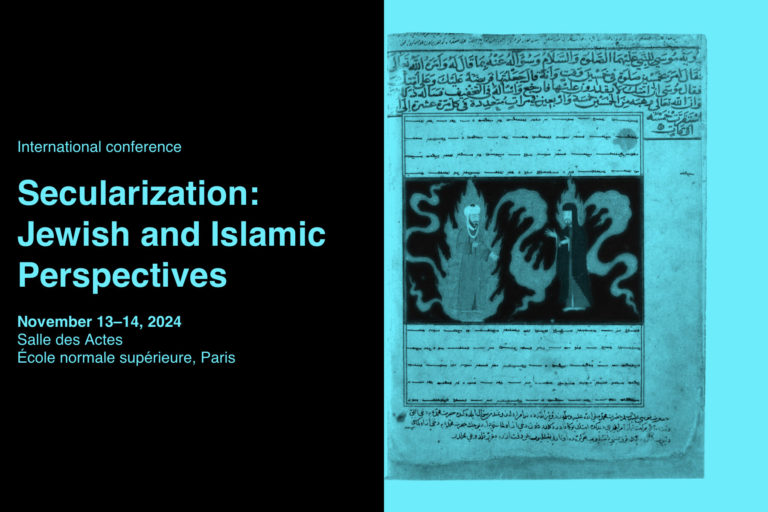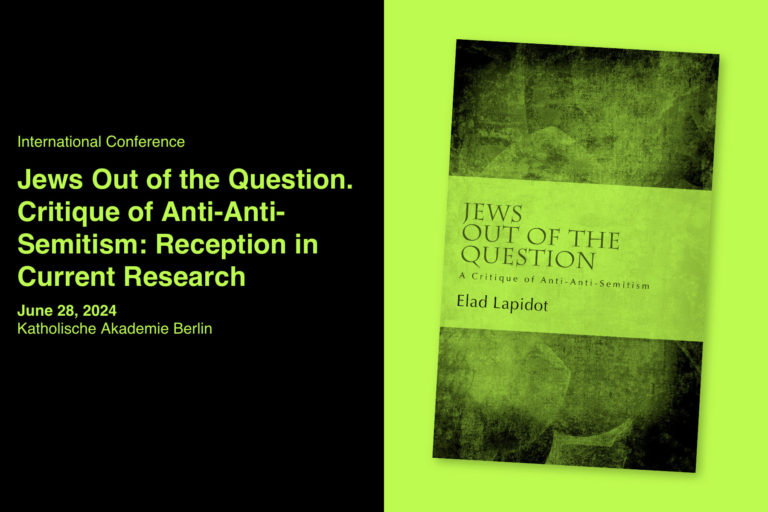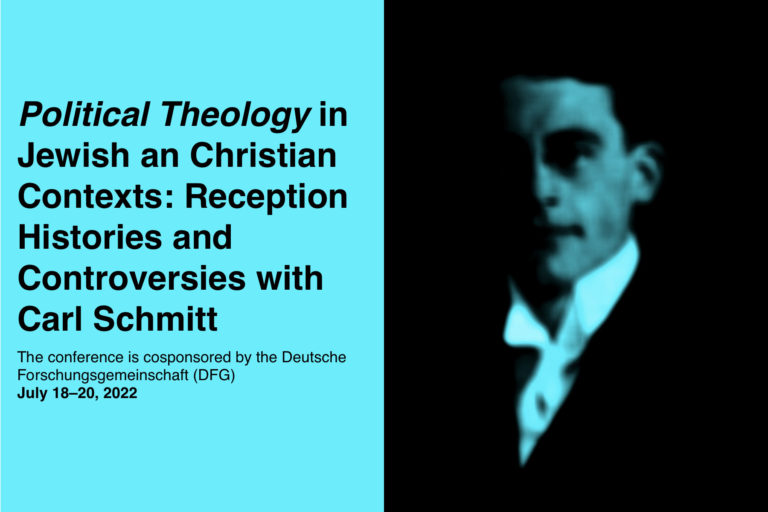International Workshop
Talmud and Contemporary Thought
October 7-11, 2021, Venice
Talmud and Contemporary Thought
General
The Talmud is an original intellectual heritage of the Jewish tradition. It is not only a text, but a medium of thought, which is both comparable to and fundamentally different from Western traditions such as philosophy, theology or modern science. Talmudic thought has been active and developing for almost two millennia, in all locations of European and Western cultures, and well beyond. Yet, save for very few exceptions, the Talmudic tradition has been and still is absent from Western thought. For the vast majority of thinkers, theorists and philosophers, Talmud is no more than a foreign word.
The Workshop on Talmud and Contemporary Thought promotes the Talmud as a medium for intellectual engagement on contemporary social, political and cultural concerns. First initiative of its kind in Europe, the program highlights the following features of the Talmud, which render it especially relevant to contemporary agenda: (1) the polemic nature of Talmudic discussions, facilitating non-reconciliatory encounter of highly opposing positions; (2) the non-synthetic plurality of voices; (3) the grounding of theory in practice, and of thinking in text; (4) the diasporic nature of Talmud; (5) the tension between identity and universalism.
Methodology
The innovative methodology of the program’s workshops has discussions revolve around a talmudic text, which serves as a medium and environment for joint thinking on politico-theoretical questions of contemporary concern. The discussions are based on readings of these texts in view of the guiding questions, which are presented by different participants as a basis for group conversation. A unique feature of the workshop is that it brings together intellectuals with various backgrounds, some more Talmudic, some from other disciplines, in an attempt to enrich conversations and broaden horizons.
2021 Theme
The theme for the 2021 Workshop is “diasporic knowledge”. Last decades have seen the rise of “diaspora” as a central category or Denkfigur for critical thinking of contemporary politics, culture and society, which calls into question dominant nation-state models. This conference seeks to examine more specifically the epistemic foundations of diapora, by exploring conceptually and historically the meaning(s) of diasporic knowledge, whereby “knowledge” includes not only theoretical but also practical and existential forms of knowing.
The idea of diasporic – or exilic – knowledge refers to (1) knowledge produced in conditions of socio-political dispersion; (2) knowledge that concerns issues, phenomena and practice that arise from the diasporic condition; (3) knowledge whose own epistemic structure (language, text, narratives, imagery, reasoning, categories, institutions, subject positions, intersubjective dynamics etc.) may be designated as dispersed, de-centralized, diasporic or exilic. All these aspects entail both epistemic and political dimensions, intertwined.
Through readings in talmudic passages, the workshop seeks to explore various questions, conceptual challenges and historical examples, concerning diasporic knowledge and epistemologies. We wish to think, for instance, of diaspora and/or exile as existential conditions of critical thought, which takes a distance from its own – social, cultural, political – location, in order to question it. Beyond individual parameters, what kind of collective features enable diasporization or de-territorialization of knowledge and thought? What kinds of spaces and territories, languages, collective performances, narratives, and laws enable and support the existence of diasporic cultures? What is the relation between diaspora, exile, and cosmopolitanism? What configurations of universality and particularity do they produce or render possible? How are these questions negotiated in both historic and contemporary diasporic cultures of knowledge, such as rabbinic ones?
The Texts
The discussions of the 2021 Workshop on the theme of diasporic knowledge will be oriented by the participants’ readings in three talmudic passages: (1) a short passage from the Babylonian Talmud, tractate Horayot 14a; (2) a story from the Babylonian Talmud, tractate Bava Kama 117a-117b; and (3) a story from the Babylonian Talmud, tractate Pesahim 65b-66a, with another version from the Palestinian Talmud, tractate Pesahim 6.1. The texts, in original and in English translation, may be found here:
Workshop
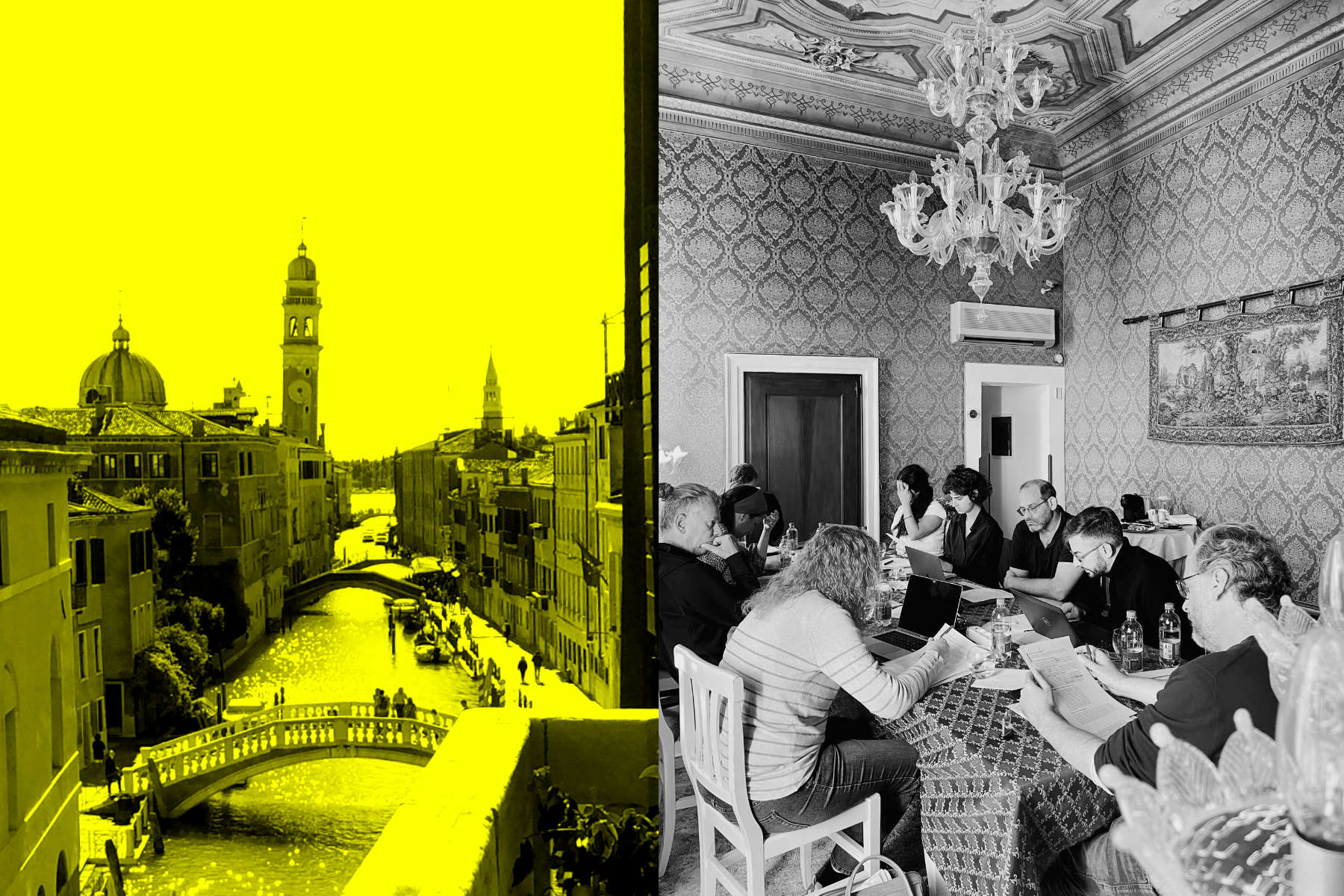
Voices
The groundbreaking workshop dealt with the timely issue of diaspora and knowledge, in a series of discussions that reflected on the possibility of understanding non-hegemonic epistemes without reducing them, at the very moment of “knowing”, into sameness and non-difference. In that context, my presentation reflected on the role of the Talmudic Moisser (informer) as a figure who transfers knowledge between diasporic and hegemonic cultures. Whereas the Moisser is often depicted negatively, the Talmudic discussions present this figure as a specific constellation of relations between power and knowledge that is more ambivalent. The Moisser is not necessarily a person of bad-faith, but also the democratic figure of inter-faith, dialogue, and openness, who nonetheless fails to respect the boundaries of non-hegemonic cultures. In the modern society of information, where knowledge aspires to traverse the Tower of Babel’s gap between different epistemes, the figure of the Moisser might become itself hegemonic – in a manner that draws attention back to the Talmudic reservations. The conference enabled, through the studying of the Talmud, an experience of production of knowledge that is not regulated by the “orderly” order of the discourse, be it academic or hegemonic; that, in its turn, opened a horizon in which the thought is allowed to wander and wonder, to go astray, to fail and to re-orient itself, in a manner that is itself Talmudic.
Itamar Ben-Ami
From a post-colonial approach, the wild peripheral desert was equated with the Diaspora, both of which constitute the Other to the central cultural North-West category. While the Northern-West center claims to possess universal knowledge which it distributes through power relations to what is considered to be the backward South-oriental periphery, particular local knowledge is being negotiated in these different diasporic communities. This tension was illustrated by analyzing the Talmudic texts, where each ancient diasporic Jewish community tries to gain legitimacy over the production of the most adequate scholar knowledge. This understanding raises the possibility to examine diasporic knowledge through the tools of the Global south theory that emphasizes the importance of knowledge coming from the south1, which inhabits marginalized neglected communities, that their voices were ignored so far. Thus, diasporic communities can be considered southern, not in relation of their geographical location, but rather due to their marginality. Hence, different societies can identify with this idea of the South, which is spreading around the world, at different periods and especially in the current era of globalization with migration waves, questioning the idea of the Western nation-state and national borders.
This inspiring workshop enabled sharing my recent research directions with scholars from different disciplines. The small gathering format was particularly efficient for focused and dynamic discussions. I believe that the conversations and the analysis brought by each of the participants to the theme of diasporic knowledge will have a continuation in the next years of collaborative research. I am grateful to the organizers for this opportunity and I would be glad to participate in these kind of workshops in the future.
1 See: Jean Comaroff and John Comaroff, Theory from the South , Routledge, 2012; Boaventura de Sousa Santos, Epistemologies of the South, Routledge, 2014; Haviva Pedaya, “An essay about the South”, Theory and Criticism, n° 54, p. 115-134, 2021 [Hebrew with English abstract]; Erez Tzfadia and Oren Yiftachel, “Urban Displaceability: A Southeastern Perspective”, Theory and Criticism, n° 54, p. 59-86, 2021 [Hebrew with English abstract].
Ilanit Ben-Dor Derimian
Perhaps our anthropoceniccondition could be described as a “post-terrestrial” diaspora or exile, a situation where we are losing the Earth as stable ground. If so, the Talmud, originated from the condition of another diaspora, might help us to understand our current situation. This was the main thesis that I presented in Venice, in a circle of scholars who, in a wonderful way, made texts from the Talmud the inexhaustible reference point of a common thinking movement. In a beautiful Venetian hotel, away from academic routines and restrictions, it was possible to experience what thinking means and that it can – also – be a social practice.
Luca Di Blasi
The 2021 Venice workshop was a special opportunity to reflect on some passages of the Talmud from different perspectives and approaches. It was a valuable experience for me to approach the Talmud for the first time and to see how this cryptic book can shed light on various issues that are still relevant to our society. Moreover, trying to define an epistemology of the diaspora has been extremely useful for my current research on diasporic philosophy of language among contemporary German-Jewish thinkers. Although I thought at the beginning that almost four days could be too much time to discuss our interpretations of the texts, over the course of the workshop I had the impression we could at least spend another week discussing the texts over and over again. To use a diasporic metaphor, this workshop was an oasis and a shelter for endless discussion that reminded me what it means to do philosophy properly beyond the production rhythms of current academic standards.
Libera Pisano
The three days I spent in the small hotel conference room in Venice in October discussing a few selected passages from the Talmud was like no other academic seminar I have previously experienced. Already to be invited to interpret an ancient historical text of which one has almost no previous knowledge is humbling. The trained hermeneut will grasp for all the tools that are available, trying to fathom the historical, literary, confessional, and linguistic context, in order to be able to hopefully say and contribute something meaningful and of relevance. In this respect the previous weeks of preparation was an intense learning experience. After having struggled to make sense of the enigmatic sections assigned to us, trying to elucidate them from a contemporary angle of some philosophical relevance, it was extraordinary to see how the group discussion evolved. Each person was coming from a specific background of knowledge and pre-understanding, and each person was able to open the text for everyone to see in new ways. The presentations and the discussions thus displayed in the most concrete manner possible the many layers of meaning that lie dormant in this textual source. After each new ninety-minute session I thought that now we had exhausted its possibilities, and yet with every new session a new angle emerged, and thus a new interpretative possibility. Apart from the educational gratification of becoming familiar with a previously unfamiliar corpus and tradition, it was this unique experience of the polyphony and multidimensional nature of textual interpretative that made this into such a meaningful experience. I am grateful for having been given the opportunity to participate, and to learn from the generous and experimentative collective spirit of this broadly composed group of academics.
In my own contribution, I took my point of departure in the topic of sacrifice, and the regulations around the slaughtering of the paschal lamb. In one of the sections that we read the topic that was debated concerned the conflict that can arise between rules concerning the sabbath and that of the paschal offering. Since the rabbinic texts were composed in the period when this practice was no longer in operation, it struck me as particularly interesting to interpret the meaning of the sacrificial practices in a different light. Using the interpretative framework from Guy Stroumsa’s book The End of Sacrifice (2005), according to which the turn away from actual animal sacrifice to more internal ascetic practices, I suggested a reading of these passages as exemplifying a “sacrifice of sacrifice”. At a time when no sacrifices are carried out, the textual and intellectual dialectical exercises manifest a sort of internalization of the temple activities, that have now been transformed into new rituals, where the cleansing of the spirit of the community is achieved through interpretative practices.
Hans Ruin
In the workshop, I had opportunity to bring to the table the notion of diaspora and diasporic knowledge beyond the traditional (Eurocentric) canon, but as a modern form of addressing the legacies of colonial violence engendered by the Black Atlantic. My presentation was focused on the notions of the body, property, and violence, as well as concerned with the processes of deterritorialization, dispossession and displacement.
During three inspiring days, thinkers from various continental philosophic perspectives and epistemic backgrounds sat around a table in Venice to discuss, unpack and challenge some of the meanings and dimensions of the notion of diaspora. I personally thank to the organizers and all the invited participants for creating such a stimulating space for critical thinking.
Juliana M. Streva
The Talmud workshop in Venice provides me with a unique opportunity to encounter the Talmud in a unique context – unique, first, because the workshop’s participants have, in part, extensive previous education in Talmud which they have accumulated in yeshivot, and/or the academy, or no previous knowledge of talmudic “texts.” Adding to this uniqueness, for me, is my sense that the “Venice studyroom” is much less marked than other “reading spaces.” It does not settle at one or the other side of the academia vs. non-academic reading divide, yet it also does not seek to neutralize the particiapnts’ situatedness (with “situatedness” I mean a person’s intellectual background, knowledge, communal embeddedness, life-history and so on). I think that this enables the fostering of a discussion, which does not overload the Talmud with different, at times divergent identitarian projects, but takes its epistemological and political premises as a starting point for destabilizing, rather than reaffirming, what we know, or think we know.
Hannah Tzuberi
The workshop was intellectually intense and inspiring. In addition to the good atmosphere, the respectful exchange and the warm relations that were immediately established between the participants, the discussions were thought-provoking and mind broadening. My contribution to the discussions in the session I lead was the tension between the transmission of knowledge as a tradition and the production of knowledge by uprooting the tradition, and the attempt to understand the concrete shape of these kinds of knowledge and the very possibility to defend a clear distinction between them.
Dror Yinon
Participants
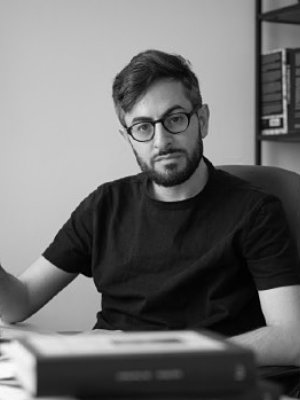
Itamar Ben-Ami is a research fellow at the Humboldt University’s Faculty of Theology, and a graduate of the ultra-Orthodox yeshiva world. His research focuses on critical and theocratic conceptualizations of the modern sovereign state, German-Jewish thought, and ultra-Orthodox political theology. His articles are forthcoming in Harvard Theological Review and Jewish Social Studies.
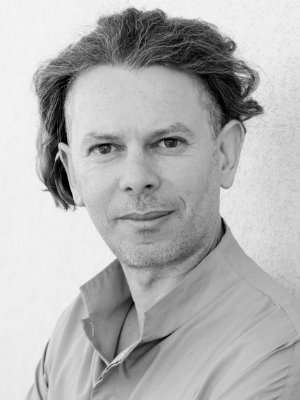
Luca Di Blasi is Associate Professor of Philosophy at the Theological Faculty of the University of Bern and Associate Member of the ICI Berlin. He is currently leading the project “Disagreement Between Religions. Epistemology of Religious Conflicts”. His theoretical main interests include philosophy of religion, modern continental philosophy, and political theology.
Main publications: Dezentrierungen. Beiträge zur Religion der Philosophie im 20. Jahrhundert (Vienna: Turia+Kant, 2018); Der weiße Mann. Ein Anti-Manifest (Bielefeld: transcript, 2013); Der Geist in der Revolte. Der Gnostizismus und seine Wiederkehr in der Postmoderne (Munich: Fink, 2002).
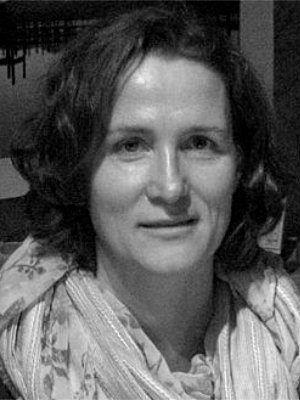
Ilanit Ben-Dor Derimian is lecturer at the Israel and Jewish Studies Department and member of the Research Center of Foreign Cultures, Languages and Literatures, at the University of Lille. She specializes in Israel and Jewish culture and history, particularly in Center-Periphery relations, desert representation, spatial identity reconstruction, ecocriticism, discourse analysis and social activism. Her forthcoming book deals with “The Representation of the Negev in the Public Discourse in Israel : From the Conquest of the Desert to Sustainable Development”.
Among her publications: « Les femmes activistes et leur contribution à la reconstruction de l’identité spatiale de la périphérie », in Femmes engagées au cœur de l’action : Espace euro-méditerranéen : Mise en récit(s), mise en image(s) (Presses Universitaires de Nancy, 2021) and « Food activism dans la périphérie au sud d’Israël » (Arabia, janvier 2020).
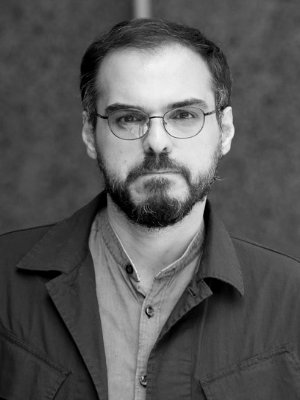
Anoush Ganjipour is a postdoctoral research fellow at the École des Hautes Études en Sciences Sociales (EHESS – Paris). His work focuses on the tradition of Islamic thought. Through a comparative approach, he tries to engage a critical dialogue with both this tradition and continental philosophy. He has recently edited a collective volume on Giorgio Agamben’s Homo Sacer entitled Politique de l’exil: Giorgio Agamben et l’usage de la métaphysique (Lignes, 2019). His most recent book is a monograph on Islamic political thought: L’ambivalence théologico-politique de l’islam: Pasteur ou Léviathan ? (Seuil, 2021).
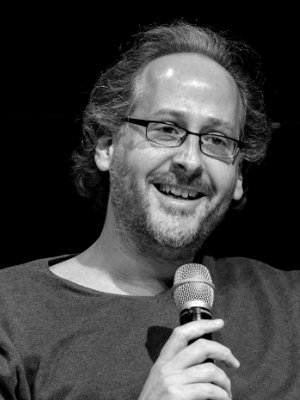
Elad Lapidot is professor for Culture Studies at the University of Lille, France. He specializes in philosophy, Jewish thought and Talmud and was teaching at the University of Bern, Switzerland, the Humboldt Universität Berlin and the Freie Universität Berlin. His work is guided by questions concerning the relation between knowledge and politics. Among his publications: Jews Out of the Question. A Critique of Anti-Anti-Semitism (SUNY Press, 2020), Hebrew translation with introduction and commentary of Hegel’s Phänomenologie des Geistes, Vol. 1 (Resling, 2020), Heidegger and Jewish Thought. Difficult Others, (Rowman & Littlefield, 2018), and Etre sans mot dire : La logiqe de ‘Sein und Zeit’ (Zeta Books, 2010).
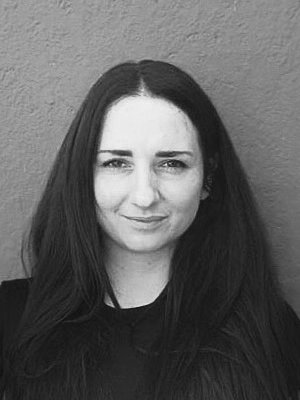
Libera Pisano is Marie-Sklodowska-Curie Fellow at University Pompeu Fabra in Barcelona. She was a research associate at the Exzellenzcluster “Understanding Written Artefacts” at the University of Hamburg, where she has been since 2016. She received her PhD in Theoretical Philosophy from La Sapienza (Rome) in 2014 with a dissertation entitled Lo spirito manifesto. Percorsi linguistici nella filosofia hegeliana (ETS 2016). She has been Research Fellow at the Department of Political and Social Science at the University of Calabria, at the Maimonides Centre for Advanced Studies, Visiting Research Fellow at the University of Haifa and at the Humboldt University of Berlin. She is the author of several essays on the role of language in Hegel’s writings, Giambattista Vico, Leopold Zunz, Moses Mendelssohn, Gustav Landauer, on contemporary German Jewish philosophy and on the concept of diaspora.
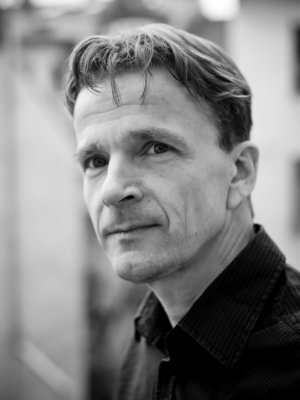
Hans Ruin, professor of philosophy, Södertörn university (Stockholm), specializes in phenomenology, hermeneutics, deconstruction, modern German thought and memory studies. Recent books: Being with the dead. Burial, Ancestral Politics and the Roots of Historical Consciousness (Stanford UP, 2019), Reduction and reflection – introduction to Husserl’s phenomenology (2020, in Swedish), In the Shadow of Reason – essays on Nietzsche’s thought (forthcoming 2021, in Swedish).
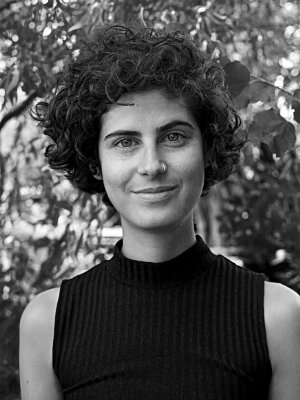
Juliana M. Streva is a transdisciplinary researcher and experimental filmmaker, originally from Brazil and currently based in Berlin. Her work lies in the assemblage of decolonial, anti-racist and feminist praxis, focusing on questions of knowledge production, structural violence, colonial legacies of modern democracy, and on-the-ground strategies of fugitivity. Currently, she is a Postdoctoral fellow at Freie Universität Berlin, member of the Project “Global Repertoires of Living Together” (BUA). Her recent works include the book Corpo, Raça, Poder [Body, Race, Power](2018) and the independent film Mulheres em Movimento [Women in Movement](2020), winner of the Presença Award at the Festival de Cinema de Alter do Chão/Brazil.
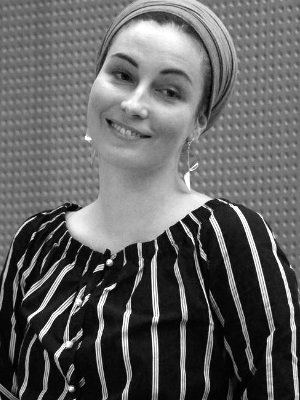
Hannah Tzuberi studied Jewish Studies and Islamic Studies at Freie Universität Berlin and was a research assistant at the Institute for Jewish Studies (FU Berlin). Currently she is a post-doctoral researcher in a collaborative research project “Beyond Social Cohesion. Global Repertoires of Living Together (RePLITO) at FU Berlin, directed by Prof. Schirin Amit-Moazami.
She is the co-editor of “Jewish Friends: Contemporary Figures of the Jew” (Jewish Studies Quarterly 27:2–3, 2020) and is working on a book-project titled “Reviving Judaism, Reviving the Nation: Post-Holocaust Imaginaries of the (German) Nation-State.” Her research interests include Talmud, halakha, and contemporary European Jewry. Her work draws on the critical study of secularism and current discussions related to the co-constitutive relations between Europe, the European subject, and Europe’s racial-religious others.
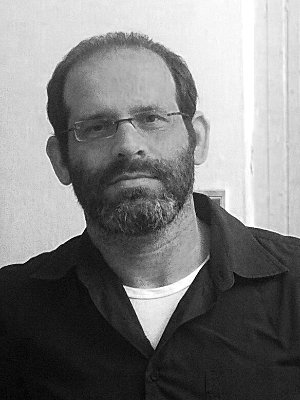
Dror Yinon teaches at the program for Hermeneutics and Cultural Studies at Bar-Ilan University. His main research fields are continental philosophy (mainly existentialism and post-structuralism), critical theory, and political philosophy.
Program
Day 1 – October 7 – Thursday
| 17:00-18:30 | Session 1 Elad Lapidot | Introduction |
| 18:30-19:00 | Coffee Break | |
| 19:00-20:30 | Session 2 Hannah Tzuberi | |
| 20:30 | Dinner |
Day 2- October 8 – Friday
| 09:30-11:00 | Session 3 Dror Yinon | |
| 11:00-11:30 | Coffee Break | |
| 11:30-13:00 | Session 4 Libera Pisano | |
| 13:00-14:30 | Lunch Break | |
| 14:30-16:00 | Session 5 Luca Di Blasi | |
| 20:00 | Shabbat Dinner |
Day 3 – October 9 – Saturday
| 11:00-12:30 | Session 6 Hans Ruin | |
| 12:30-14:00 | Lunch Break | |
| 14:00-15:30 | Session 7 Ilanit Ben Dor Derimian | |
| 15:30-16:00 | Coffee Break | |
| 16:00-17:30 | Session 8 Anoush Ganjipour | |
| 17:30-18:00 | Coffee Break | |
| 18:00-19:30 | Session 9 Juliana Streva |
Day 4 – October 10 – Sunday
| 9:00-11:00 | Session 10 Itamar Ben Ami | |
| 11:00-11:30 | Coffee Break | |
| 11:30-13:30 | Session 11 Concluding Discussion |



